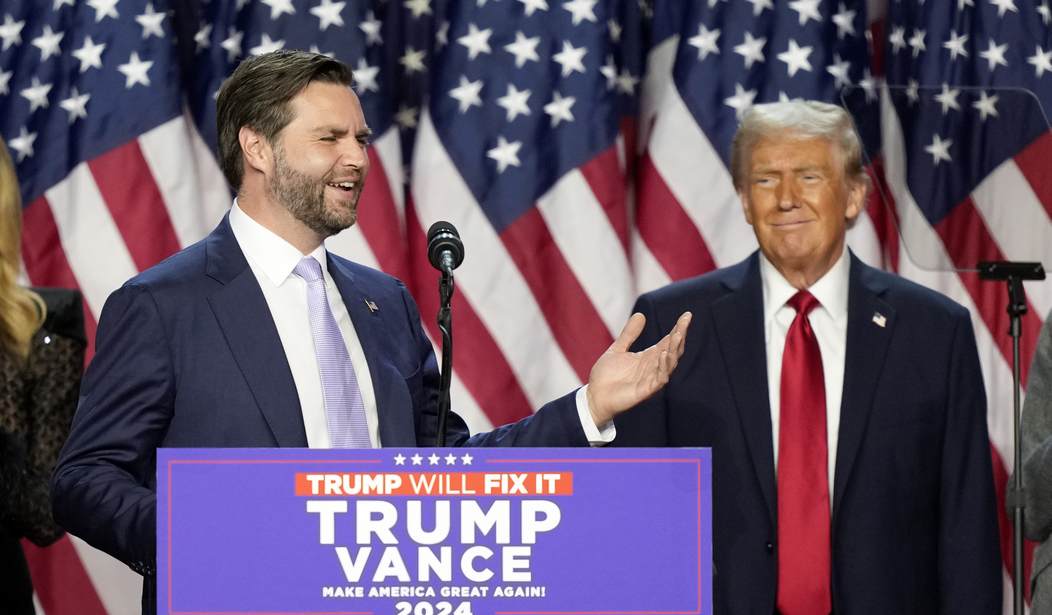America’s friends of limited government have had a rough go lately. Government bureaucrats and spenders of all stripes have been living it up.
Since 2001, the last time the federal budget was balanced, federal revenues have shown healthy growth of 3.9% annually, while inflation averaged only 2.5%. These figures would normally signify a sound, sustainable economy. But spending has grown at a rate of 5.5%, so instead we have a destabilizing gross federal debt of $36 trillion.
The response of the Biden-Harris administration to this looming catastrophe was to double down on spending. In an era of relative peace and prosperity, they kept mindlessly passing out money to win political points.
The hope now is that the Trump-Vance administration can reverse this madness. If so, the Department of Education would be a good place to start. It is a prototype bureaucracy that has grown and prospered despite a complete lack of mission success.
The DOE was created in the 70s, ostensibly to improve the chronically ailing achievement scores in government schools. But in spite of the hundreds of billions spent, it has totally failed. Instead, it has provided steady employment for thousands of education bureaucrats who administer federal grants and programs, write jargon-laden academic papers yet have made no discernible difference in the quality of American education.
Remember Goals 2000, Every Student Succeeds, or No Child Left Behind? What about the Office of Safe and Healthy Students , the Education Facilities Clearinghouse or offices dedicated to American-Asians, Native Hawaiians, American Indians, Hispanics, African-Americans and other hyphenated groups singled out for special treatment? Of course you don’t, unless you are one of the lucky recipients of their largess.
But DOE has been worse than useless. It provides a platform for the teachers’ unions, by far the most influential protector of the status quo and obstruction to school choice. The damaging Covid shutdown was the latest blow to union-run public schools delivered by the DOE/unions dynamic duo.
Recommended
Most private schools and charters, with access to the same medical information, kept their schools mostly open. Their students didn’t suffer the crippling learning loss that the unfortunate wards of the DOE did.
Ronald Reagan was the first of many leaders to advocate for DOE‘s elimination. But like bureaucracies everywhere, DOE is dedicated above all else to its own preservation, which is the one goal in which it has succeeded. It won’t be easy, but returning education policy to the states would be a great service to future generations of students.
The Department of Housing and Urban Development has a similar failed history. When it was created in 1964, the US homeownership rate was 64%. After six decades of HUD stewardship, the homeownership rate is still 64%.
It’s not like they haven’t tried. HUD’s mortgage companies – Ginnie Mae, Freddie Mac, and Freddie Mae manage multiple housing programs with federal finance agencies, all with the goal of controlling costs and boosting home ownership .
Yet under HUD’s “leadership”, home prices have far outstripped inflation. When HUD was created in 1967, the average home price was $22,000, about three times the average family income. Today the average home costs $500,000, seven times income. Meanwhile, European households without a comparable bureaucracy average 69% home ownership.
HUD has spent about $4 trillion since it’s inception with little to show for it. The housing market would function at least as well if government simply got out of the way.
As these and other bureaucracies have grown and prospered, we have developed a very centralized form of government. In the land of the free, we have grown comfortable sending our tax money to Washington for faceless bureaucrats to return to us, always with strings attached.
We get the healthcare, the education, roads and other goodies that government decrees. Government buys or subsidizes everything from unpopular electric cars and trains, state and local government public safety departments, “climate initiatives” and much more.
Reforming an entrenched bureaucracy, much less eliminating it, is extraordinarily difficult. Yet the present could be a rare opportunity to repair this destruction to our way of life. We must be fearless and strategic in reducing government excess and providing a successful economic future for our descendants.

























Join the conversation as a VIP Member